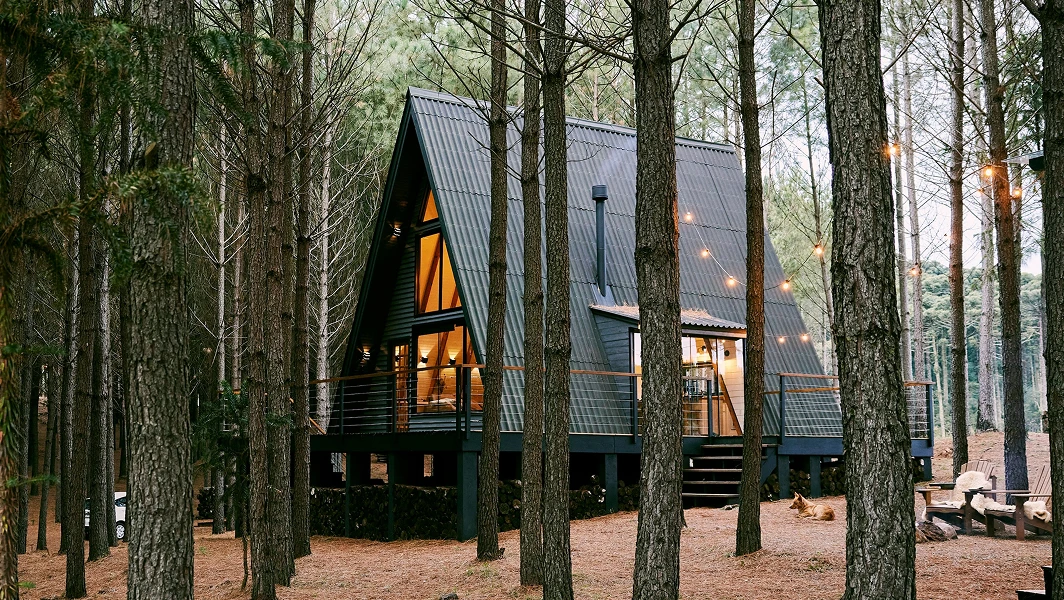
Before you list your property, it’s essential to understand Greensboro short-term rental regulations, permits, and compliance requirements. These rules ensure your rental operates legally and help you avoid costly penalties. In this guide, we’ll break down what qualifies as an STR, the key regulations you must follow, recent legal changes, and how to apply for your permit.
If you’re also interested in Greensboro short-term rental market insights, including its tourism appeal, event scene, and guest demand.
What Is a Short-Term Rental?
Under Greensboro vacation rental laws, a short-term rental is defined as the rental of a residential dwelling unit for 30 consecutive days or less. This includes entire homes (Whole House Rentals) or individual rooms (Homestay Rentals) listed on platforms like Airbnb or Vrbo.
Now that we know what qualifies as an STR in Greensboro, let’s look at the key rules every host must follow to operate legally.

Greensboro short-term rental regulations state that stays are allowed only in residential properties and must comply with all local and state laws. To operate legally, owners must obtain a zoning permit, display it inside the property and on all listings, and reapply within 30 days if ownership or management changes. Occupancy is limited to two adults per bedroom, with parking restricted to one vehicle per bedroom.
Publicly promoted events with more than twice the number of permitted guests are prohibited, and exterior signs advertising the rental are not allowed. For whole-house STRs, the owner or operator must live in Guilford County or an adjacent county and be reachable during guest stays. In multifamily buildings, short-term rentals are limited to either one unit per building or no more than 25% of the total units, whichever number is higher.
Beyond these core regulations, recent legal changes have made it easier for properties owners to qualify as STRs.

Until early 2024, Greensboro’s short-term rental regulations required that STRs in single-family homes and duplexes be located at least 750 feet apart, measured from property lines. This restriction was designed to limit the concentration of rentals in residential neighborhoods. However, on February 18, 2025, the City Council voted to remove the 750-foot separation rule, making it easier for property owners to obtain permits for new STRs regardless of proximity to existing ones.

All short-term rentals in Greensboro must have an approved zoning permit. These are the Greensboro STR permit requirements every host must meet before they can operate legally. This applies to both Whole House Rentals and Homestay Rentals. The permit application requires a $200 non-refundable fee, which can be paid online or in person. Once issued, the permit must be displayed inside the property and on all online listings. If the property changes ownership or operators, a new permit must be obtained within 30 days.
Property owners and managers can apply using the city’s official online STR permit application form, or they can submit the paperwork in person at the Melvin Municipal Office Building (City Hall), 300 W. Washington St., Greensboro, NC.
Failing to meet these requirements can result in costly fines. Here’s what you need to know about penalties.

Short-term rental operators who fail to comply with Greensboro STR penalties risk fines and may face civil penalties of up to $500 per violation. Common violations include operating without a zoning permit, exceeding occupancy limits, hosting prohibited events, or ignoring parking restrictions. Repeated offenses can lead to the revocation of the STR permit and additional enforcement actions by the City’s Planning Department. To avoid fines and potential loss of rental privileges, hosts should stay fully compliant with the Greensboro short-term rental ordinance.
Staying compliant isn’t just about avoiding fines. It’s also the first step toward tapping into Greensboro’s growing STR market and earning potential.

Based on the latest AirDNA data short-term rentals, annual revenue averages $15.7K per property, showing a 3% increase over the past year. The occupancy rate sits at 51% (+4%), while the average daily rate (ADR) is $182.20 (+3%). Revenue per available rental (RevPAR) reached $89.30, marking a 6% year-over-year growth.
These figures indicate a healthy and gradually improving Greensboro short-term rental market. Moderate occupancy combined with steady ADR growth points to a balanced opportunity for hosts and investors. The steady revenue increases, alongside Greensboro’s favorable investability rating, make the city attractive for both experienced and first-time STR operators.

With occupancy rates holding steady at 51% and both ADR and RevPAR on the rise, Greensboro offers hosts the opportunity to increase earnings through strategic pricing and targeted marketing. Here’s how to leverage the market:
By combining market insights with compliance and smart listing strategies, Airbnb hosts in Greensboro can improve both their occupancy and profitability, especially during the high-demand spring and summer seasons.
Beyond local regulations, Greensboro hosts must navigate platform-specific policies that directly impact profitability and guest relationships.
Platform fee structures significantly affect your bottom line. Recent changes to Airbnb's host fees mean understanding these costs is essential for accurate pricing strategies. Hosts who account for fees when setting rates maintain better profit margins while staying competitive.
Cancellation policies require careful consideration. Choosing the right policy balances flexibility for guests with protection for your revenue. Understanding how different policies affect your listing's visibility and booking rates helps hosts make informed decisions.
Guest communication extends beyond the stay. Leaving thoughtful reviews for guests builds credibility on the platform and contributes to a trusted rental community. Consistent reviews demonstrate professionalism and help other hosts make informed decisions.
Preparation prevents problems. An amenities checklist ensures nothing gets overlooked between bookings. From essential kitchen items to seasonal supplies, thorough property preparation leads to positive guest experiences and avoids negative reviews over missing items.
By staying informed about platform requirements alongside local regulations, Greensboro hosts position themselves for long-term success in the short-term rental market.

According to North Carolina short-term rental taxes, reservations of less than 90 nights are subject to both state sales tax and local occupancy tax. The state sales tax rate ranges from 6.75% to 7.5%, which includes a statewide 4.75% tax plus a local county tax of 2% to 2.75%, depending on location. In addition, cities and counties may impose a local occupancy tax—typically between 1% and 8%—on the listing price, including any cleaning or guest fees. Rates vary by jurisdiction, so hosts should confirm the exact percentage with their local finance department. For detailed tax rate information, visit the North Carolina Department of Revenue’s sales tax rates page.
Once you’ve handled the taxes, the next step is stress-free property management. And if you want to explore market trends and expert advice, check out our industry insights.

Navigating Greensboro short-term rental regulations can be challenging, but you don’t have to do it alone. At Triad Vacation Rentals, we help homeowners secure permits, stay compliant, and maximize earnings through expert pricing strategies, professional marketing, and property management.
Whether you’re new to hosting or looking to boost your current rental income, our team can take care of everything. So you can focus on enjoying the returns.
Contact us today to learn how we can help you transform your property into a high-performing Greensboro vacation rental.



Happy with Triad?
Leave us a quick Google review – it helps other homeowners find the support they need.